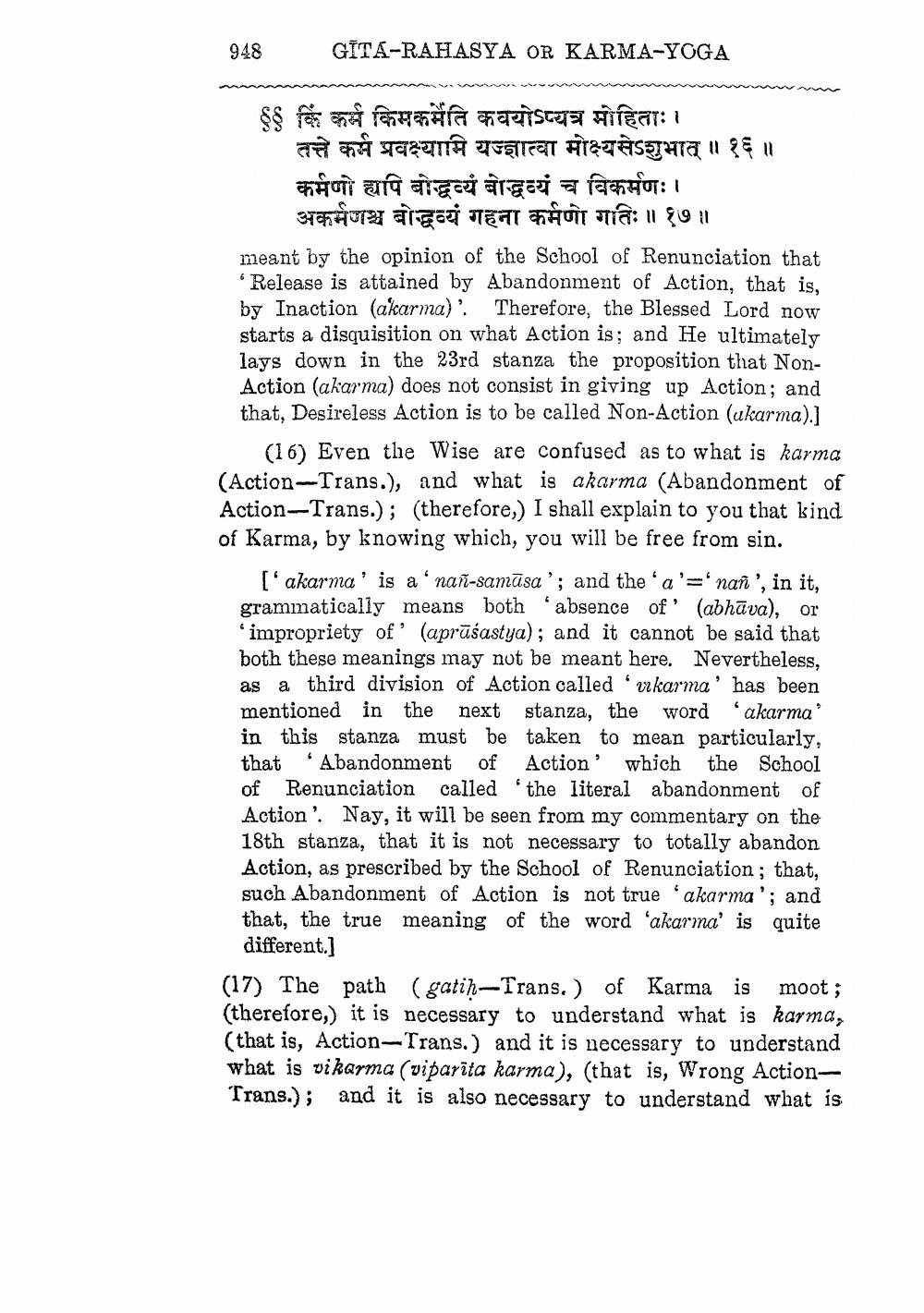________________
948
GITA-RAHASYA OR KARMA-YOGA
कि कर्म किमकर्मेति कवयोऽप्यत्र मोहिताः । तत्ते कर्म प्रवक्ष्यामि यज्ज्ञात्वा मोक्ष्यसेऽशुभात् ॥ १६ ॥ कर्मणो ह्यपि बोद्धव्यं बोद्धव्यं च विकर्मणः ।
अकर्मणश्च बोद्धव्यं गहना कर्मणो गतिः॥ १७ ॥ meant by the opinion of the School of Renunciation that 'Release is attained by Abandonment of Action, that is, by Inaction (akarma)'. Therefore, the Blessed Lord now starts a disquisition on what Action is; and He ultimately lays down in the 23rd stanza the proposition that NonAction (akarma) does not consist in giving up Action; and that, Desireless Action is to be called Non-Action (ukarma).]
(16) Even the Wise are confused as to what is karma (Action-Trans.), and what is akarma (Abandonment of Action-Trans.); (therefore,) I shall explain to you that kind of Karma, by knowing which, you will be free from sin.
L'akarma' is a' nañ-samāsa'; and the 'a'=' nan', in it. grammatically means both 'absence of' (abhāva), or 'impropriety of (aprāśastya); and it cannot be said that both these meanings may not be meant here. Nevertheless, as a third division of Action called 'vrkarma' has been mentioned in the next stanza, the word 'akarma' in this stanza must be taken to mean particularly, that “Abandonment of Action' which the School of Renunciation called 'the literal abandonment of Action'. Nay, it will be seen from my commentary on the 18th stanza, that it is not necessary to totally abandon Action, as prescribed by the School of Renunciation; that, such Abandonment of Action is not true 'akarma'; and that, the true meaning of the word 'akarma' is quite
different.] (17) The path (gatik-Trans.) of Karma is moot; (therefore, it is necessary to understand what is karma, (that is, Action-Trans.) and it is necessary to understand what is vikarma (viparīta karma), (that is, Wrong ActionTrans.); and it is also necessary to understand what is




